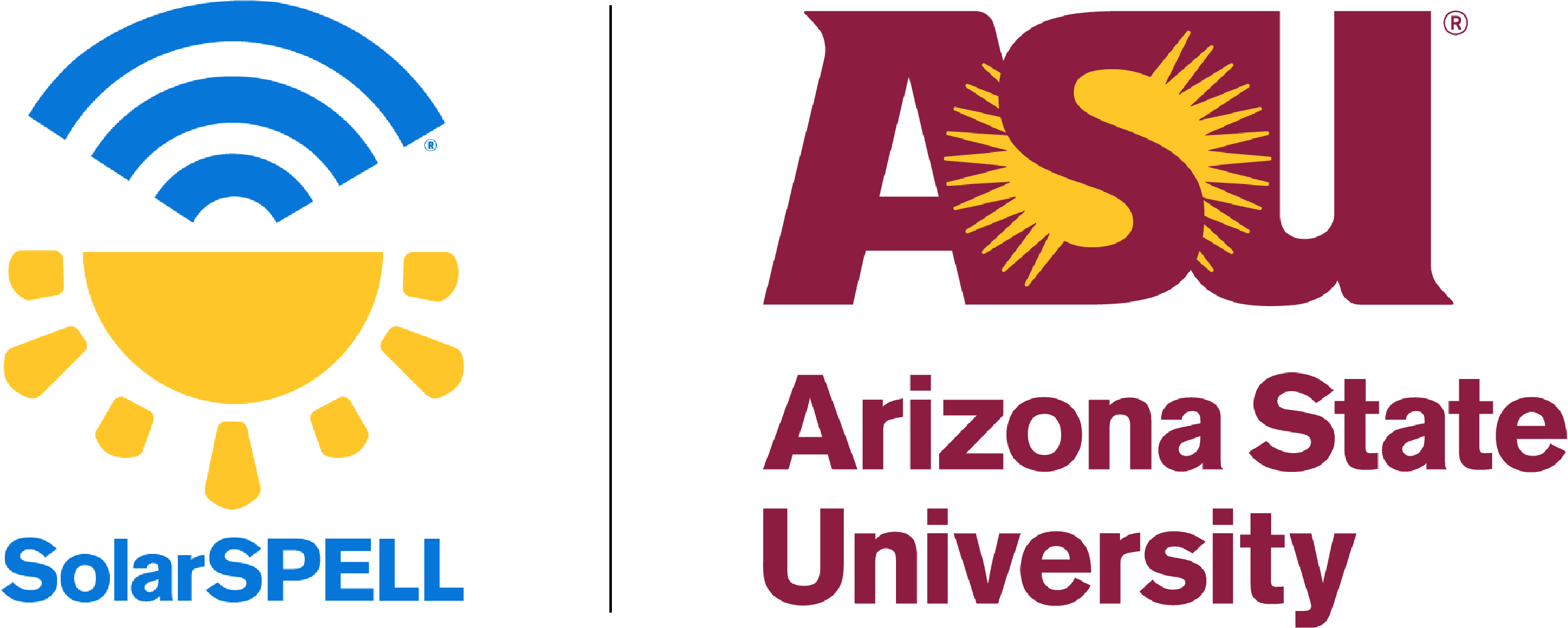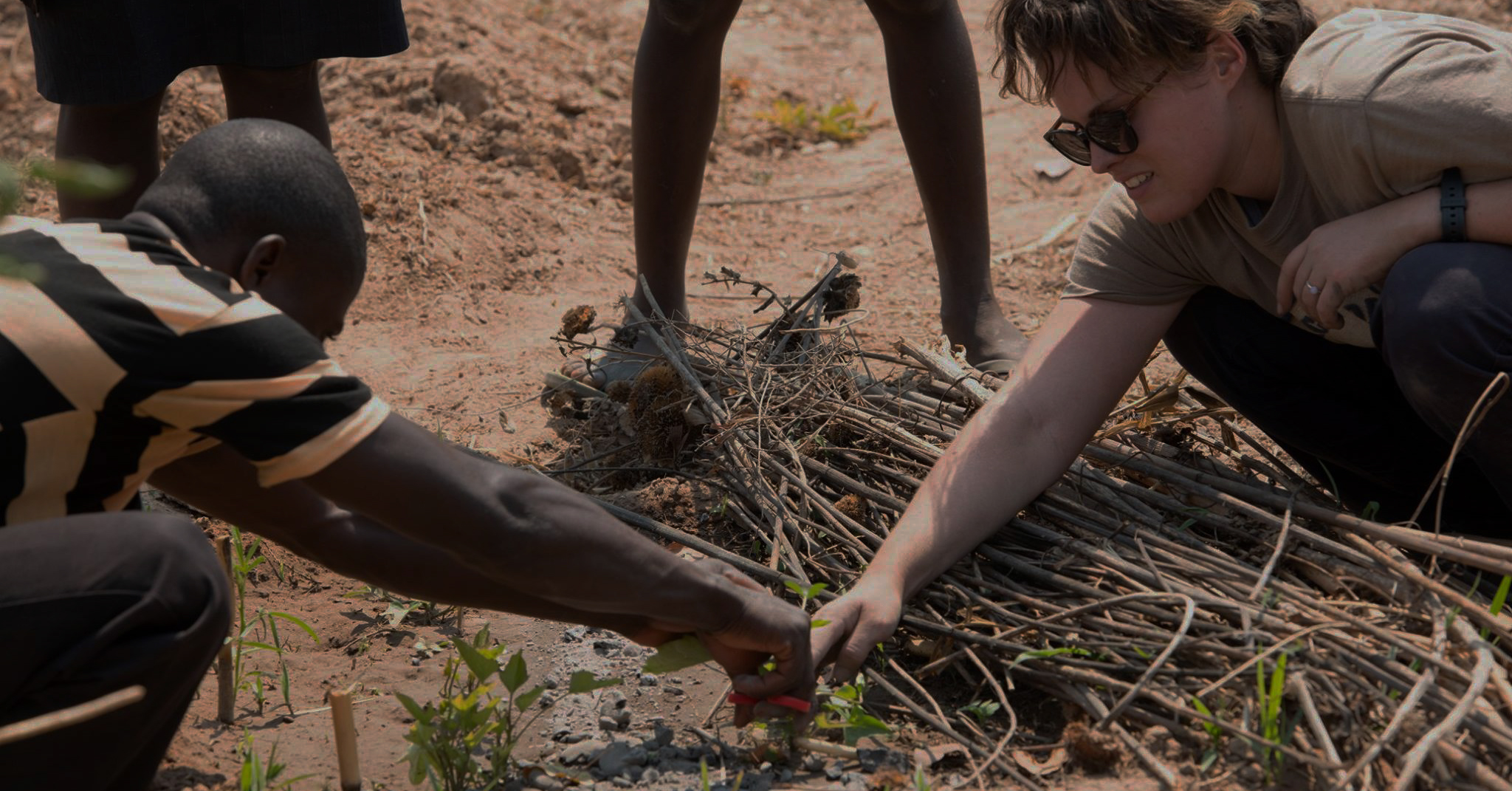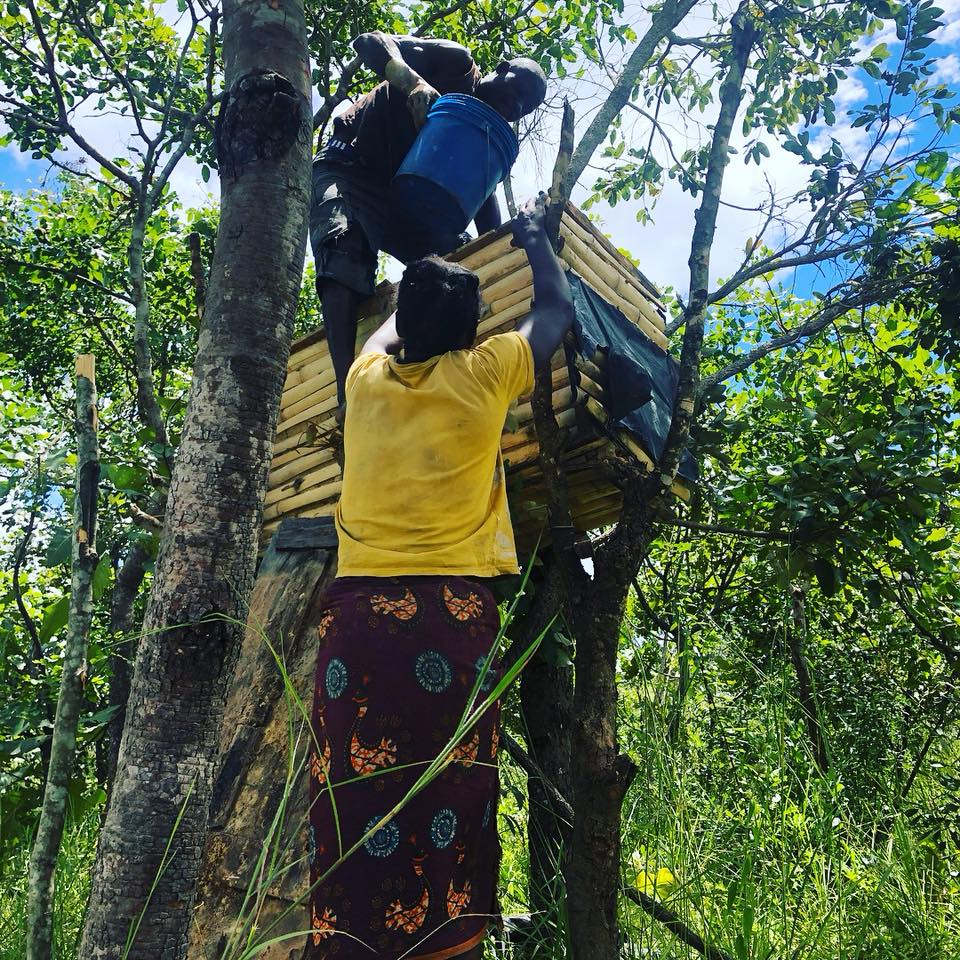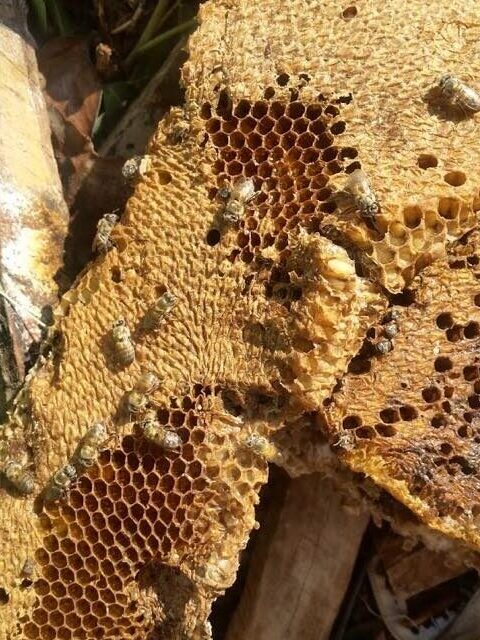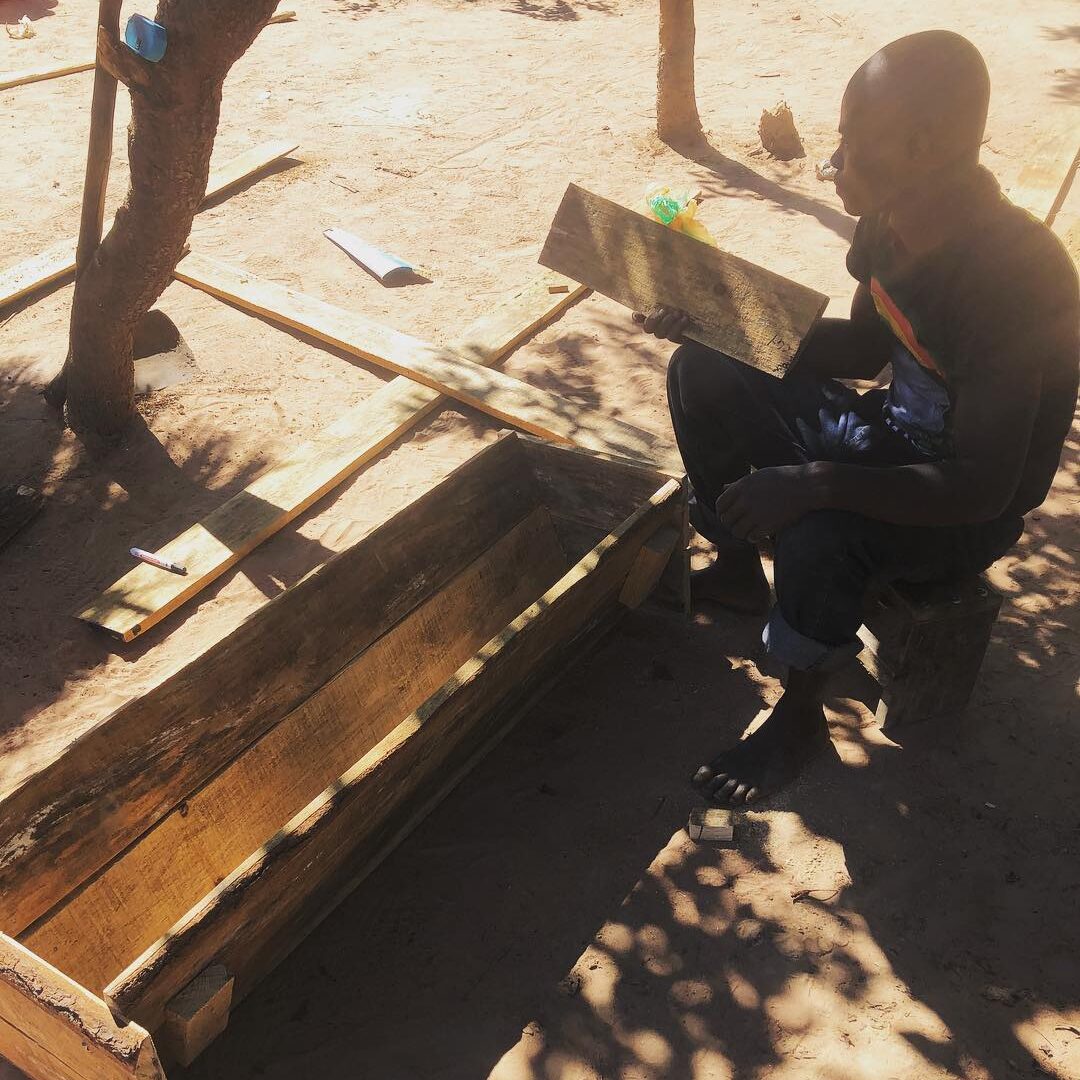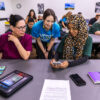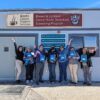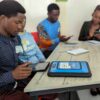Over the years, we’ve implemented hundreds of SolarSPELL libraries in primary and secondary schools around the world to provide educational materials for teachers, students and the communities they live in. However there is still a need in these mostly rural communities for more technical information, particularly on agriculture. In the countries we partner with, most families depend on farming to survive, but rising temperatures, droughts and increasingly unpredictable weather threaten their livelihoods.
So we began planning a library that would provide resources to build resilience in the face of climate change. That story begins not with a classroom and some books, but in a tree. Surrounded by bees.
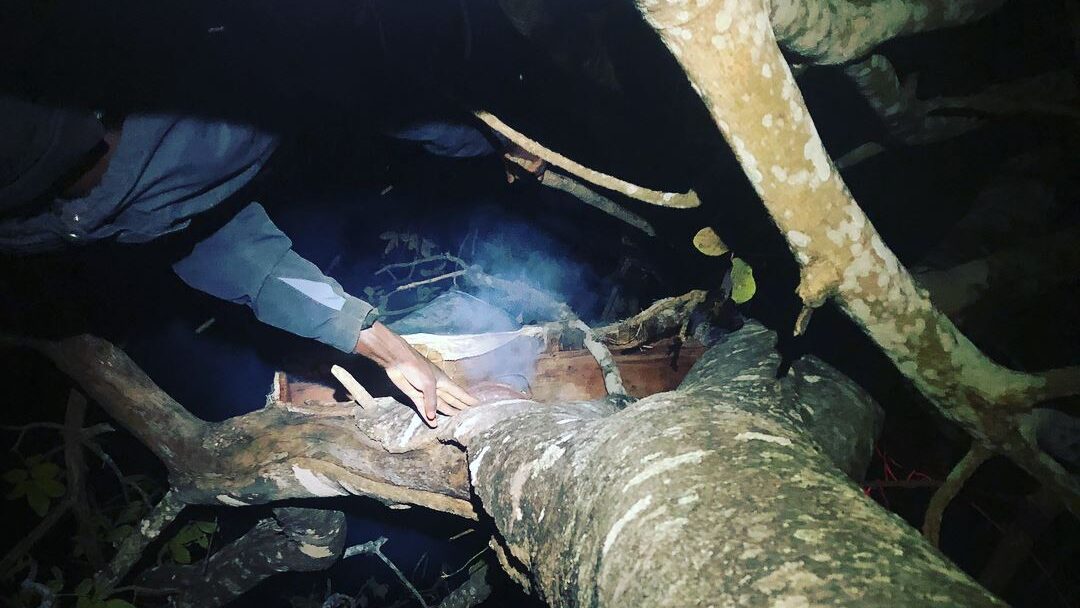
Colby Howell was serving as a Peace Corps Volunteer in rural Zambia when their host brother Chanda approached them with an idea. He wanted to start a beekeeping business in order to make enough money to send his two children to school. There was just one problem. Neither of them knew anything about beekeeping.
For Chanda, that knowledge was not easy to come by. There were no nearby experts to consult, no libraries to scour. The village he lived in, like many in the region, didn’t have reliable cell service or internet connection. Even when he did have internet access, buying data to stream videos, load websites or download PDFs was prohibitively expensive.
Fortunately, Colby had received a manual on beekeeping during a Peace Corps technical training and was able to share it with Chanda. That information was all it took for him to get 13 bee boxes set up by the time Colby’s service came to a close. Within months, the pair were up in the trees, harvesting six pounds of honey. The added source of income from this new business was a huge boon for their family.
Colby would soon use this experience to help SolarSPELL make resources like that pivotal beekeeping manual accessible to many many more.
The World Bank estimates that across the globe, 60% of people depend on agriculture for survival. But with conventional agriculture leading to the loss of 24 billion tons of fertile soil per year, and with climate change threatening once reliable yields, these families are under greater pressure than ever to diversify their sources of income and implement new, climate-smart techniques to adapt.
“There’s an overwhelming need for resources on beekeeping, animal husbandry, et cetera,” said Colby. Yet less than 10% of rural farmers have access to internet or electricity with which to seek out new information on these topics. Instead, ideas are shared by word of mouth, extension trainings and spiral-bound manuals that are quickly damaged by rain and termites.
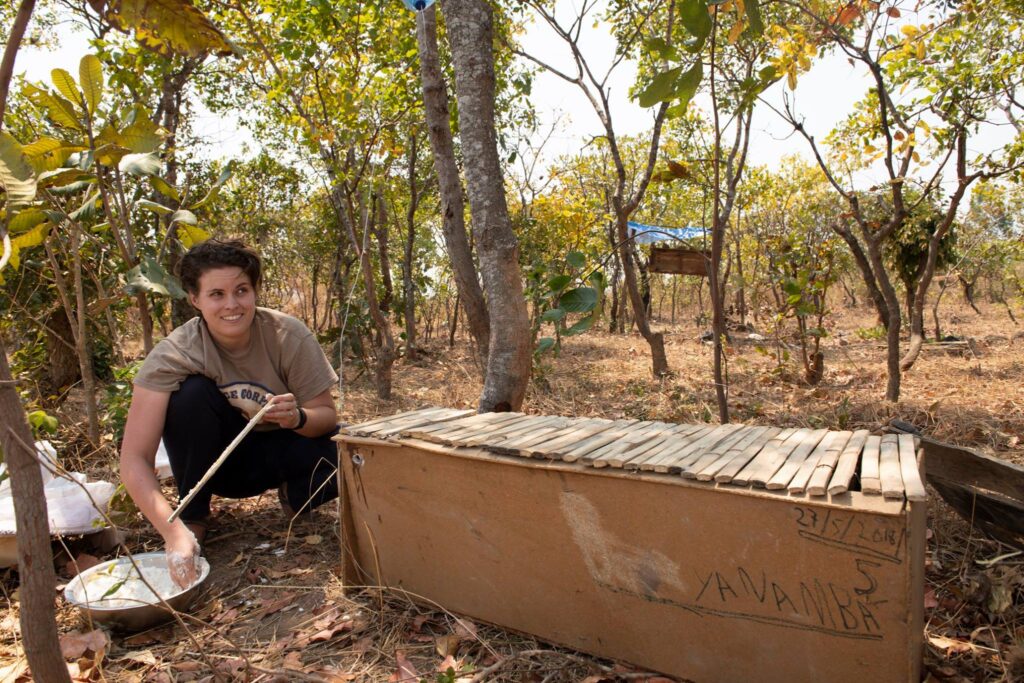
After finishing their Peace Corps service, Colby came to Arizona State University, where they began working with two other students, Amanda de Carvalho and Mary Haddad, to guide the development of SolarSPELL’s Agriculture Library. Together they researched and curated open source content from an array of extension organizations, emphasizing climate-smart practices, rural income generation, gender inclusivity, animal husbandry and coffee production. In order to provide locally relevant content, the team focused on resources that would be useful for farmers in East and Southern Africa.
“I really enjoyed being able to connect with other extension organizations and researching what resources are available out there that can be helpful for rural farmers,” said Amanda, who served as an Agriculture Volunteer in Peace Corps Cameroon. “I have found so much information that would’ve been fantastic for me to use in the field and am looking forward to using this knowledge in the future.”
The trio laid the foundation for a library that today includes thousands of PDFs, videos and audio files, alongside engaging modules and interactive lessons on the Foundations for Farming approach to conservation agriculture.
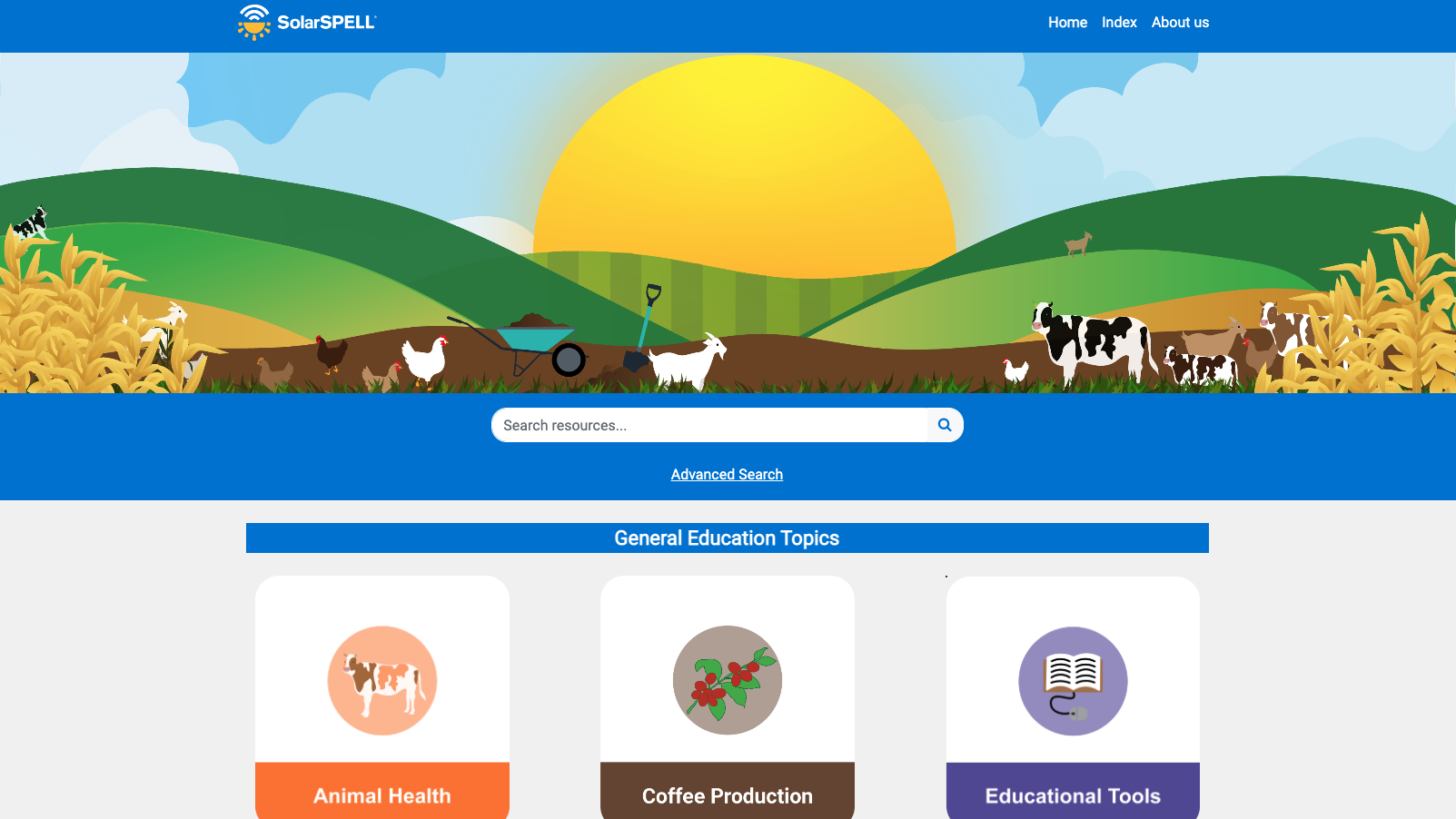
This week, our team wraps up a trip to Zimbabwe to pilot the library with our partners at Foundations for Farming, who will share it with the agricultural extension agents they train. And soon we’ll be traveling to Rwanda to train Bridge2Rwanda interns how to curate and translate content in order to provide even more localized and accessible information.
A library is never finished, and we are excited to work with our partners to improve our East Africa Agriculture Library and to use it as a model for other regional agriculture collections.
“The whole project meant a lot to me because I saw the impact it could have,” said Colby. “Ultimately, the resources on the SolarSPELL library can equip farmers with the tools needed to adapt to climate change and to mitigate the effects of it.”
